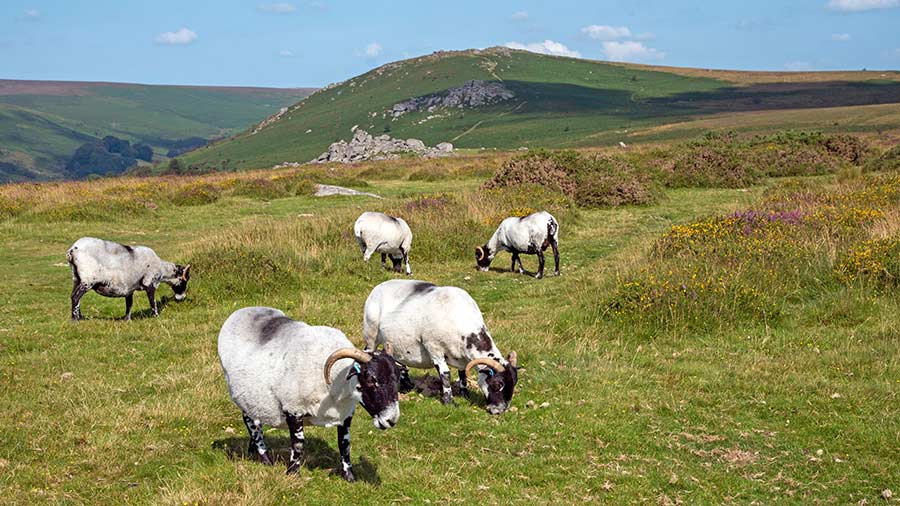Pressure to destock Dartmoor ongoing as review takes place
 © petert2/Adobe Stock
© petert2/Adobe Stock Pressure to cut stocking levels on Dartmoor is still ongoing, Farmers Weekly can reveal, even as a minister-ordered review into management of the site gets under way.
Commoners had believed a Rural Payments Agency (RPA) plan to give them a “year’s grace” by maintaining current stocking levels for 12 months, as part of a five-year transition, was being adhered to by Natural England (NE).
See also: Natural England proposes one-year stewardship rollover for Dartmoor
According to sources close to the situation, shortly after the plan was set out, NE said it would still need to make changes in a small number of areas in year one, but there was a perception that these changes would be incremental.
Since then, NE has made radical demands to destock during rollover negotiations for Higher Level Stewardship (HLS) agreements, with one common on the north side of Dartmoor offered terms that include 100% removal of stock in the winter and 45% stock reduction through the summer.
Now the deputy chairman of the Uplands Alliance, Robin Milton, has urged ministers to step in and ensure all destocking demands are formally paused while the review concludes, to allow those affected a chance to adapt their businesses.
Farmers Weekly understands there are six commons with HLS agreements due to be terminated in the February-May period next year, one of which is the Forest of Dartmoor.
This common has recently signed a rollover agreement that maintained stocking levels, but introduced new conditions on shepherding and firebreaks.
Layland Branfield, who farms in the area and represents Dartmoor Commoners Council, said: “That in itself is major for us, but at least our administrator hasn’t had to sit down with nearly 100 graziers and try to rehash an internal agreement.
“If we’d had to do that, it’s highly likely the Forest of Dartmoor wouldn’t have got an agreement in time for a rollover, leaving 25,000 acres of Dartmoor outside an agri-environment scheme, which would be getting on towards 40% of Dartmoor.
“Natural England couldn’t allow that to happen, because they wouldn’t achieve their key performance indicators, but on the smaller commons, they’re being quite brutal with some of the cuts they’re demanding.”
Mr Branfield went on to say he believed stocking levels should be held steady for the first two years of the five-year transition, given the length of time needed to conclude the government review.
Wesley Smyth, Natural England area manager for Devon and Cornwall, said: “The option for a one-year extension followed by a four-year further extension is still available for farmers whilst we await the conclusions of the independent review and we are meeting with all commoners associations to facilitate their first-year agreement extensions.
“Future four-year extensions for all agreements will be informed by the outcome of the independent review.
“There are, however, three commons where the condition of heathland shrubs, such as heather and bilberry, on the sites of special scientific interest is so poor that we need to ask for changes to stop further decline to these important habitats; either by management, such as shepherding or by adjusting current grazing management, particularly during the winter period.
“We are continuing discussions with those agreement holders.”
